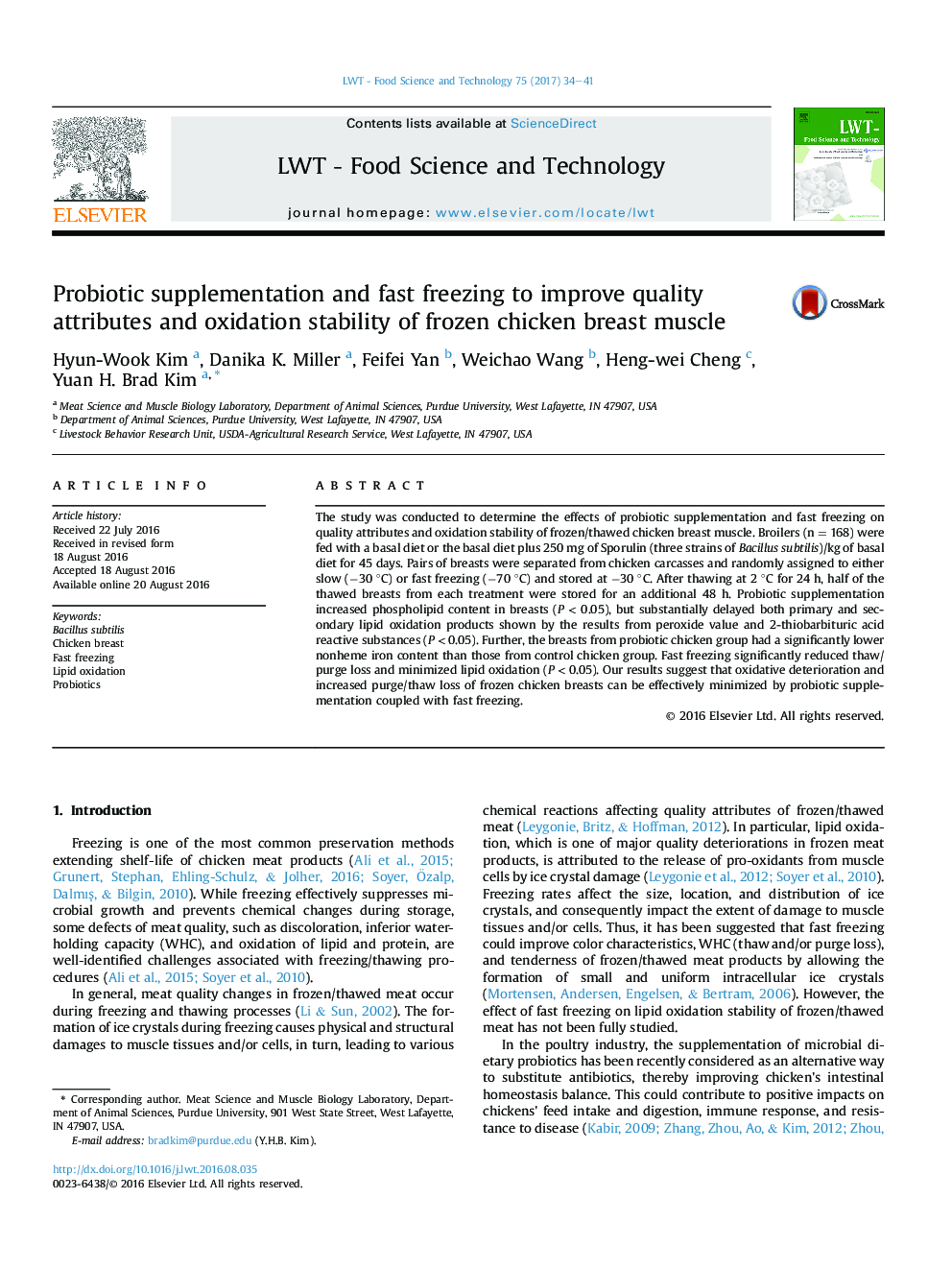| Article ID | Journal | Published Year | Pages | File Type |
|---|---|---|---|---|
| 6400102 | LWT - Food Science and Technology | 2017 | 8 Pages |
â¢Probiotic and freezing effects on oxidation of chicken breast were determined.â¢Broilers were supplemented with 250 mg of probiotic/kg of basal diet for 45 days.â¢Breast muscles were assigned to either slow (â30 °C) or fast freezing (â70 °C).â¢Probiotic feeding prevented lipid oxidation in frozen/thawed chicken breasts.â¢Fast freezing decreased thaw/purge loss and suppressed lipid oxidation.
The study was conducted to determine the effects of probiotic supplementation and fast freezing on quality attributes and oxidation stability of frozen/thawed chicken breast muscle. Broilers (n = 168) were fed with a basal diet or the basal diet plus 250 mg of Sporulin (three strains of Bacillus subtilis)/kg of basal diet for 45 days. Pairs of breasts were separated from chicken carcasses and randomly assigned to either slow (â30 °C) or fast freezing (â70 °C) and stored at â30 °C. After thawing at 2 °C for 24 h, half of the thawed breasts from each treatment were stored for an additional 48 h. Probiotic supplementation increased phospholipid content in breasts (P < 0.05), but substantially delayed both primary and secondary lipid oxidation products shown by the results from peroxide value and 2-thiobarbituric acid reactive substances (P < 0.05). Further, the breasts from probiotic chicken group had a significantly lower nonheme iron content than those from control chicken group. Fast freezing significantly reduced thaw/purge loss and minimized lipid oxidation (P < 0.05). Our results suggest that oxidative deterioration and increased purge/thaw loss of frozen chicken breasts can be effectively minimized by probiotic supplementation coupled with fast freezing.
